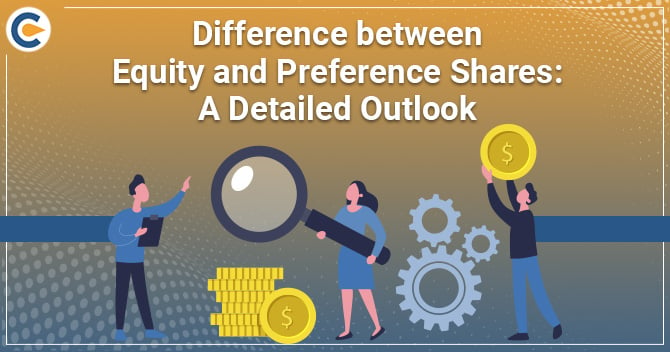This write-up aims at enlisting some key briefing that will help you difference between the listed and unlisted company.
Technically, listed entities are those which are included on a particular stock exchange. The stock exchanges have many underlying requirements that a company must adhere to in order to stay listed.
A private company generally goes public to sell its share to the general public, and once it does that, it registers with a stock exchange. Companies go public to minimize their financial liabilities and have means of funding themselves apart from bank loans. A publically-held entity need not always be listed.
An unlisted public company is not listed on any stock exchange but can have countless shareholders to procure capital for any commercial purpose.
Following are reasons that usually restrain companies from registering to on a Stock exchange;
- Having minimal footprint or market presence
- Having fewshareholders listing
- There is no need for significant investment
What is a Listed Company?
A company whose shares are traded on a stock exchange is known as a listed company. It must comply with listing prerequisites of that exchange, including minimum earning level or how many shares are listed.
What is an Unlisted Company?
The unlisted company refers to those companies that aren’t listed on any stock exchange, so they are privately owned. Since they are unlisted, they do not have the privilege to procure funds. They are becoming capital investors. The share trading is “over the counter”, where the agreement’s specification can be made in pursuant to the requirement of the parties. Thus, the exchange of controls is averted. Unlisted entities have more control over business affairs.
This brings us down to some fundamental questions, such as
- Can an unlisted entity issue shares in private placement?
- What is the director’s liability in such an event?
- What if the shares of such companies do not get on any stock exchange?
- Do the company’s investors have an exit route?
The question of whether an offer of debentures or shares to a few people amounts to a public offering will depend on the facts of each case.
Here are some noteworthy points in this regard:
- When an offer of such type is regarded as a public offering, it must adhere to Sebi guidelines in case of an IPO, i.e. initial public offering.
- The company would have the accountability to fulfil the rules applicable to public entities not listed for issuing shares on preferential norms.
Provisions for Unlisted Public Companies (preferential allocation), 2003
These rules covered all unlisted public companies w.r.t preferred issues (private placement) of shares, partially convertible bonds, fully convertible bonds, or any other financial tool that would be exchanged or converted with equity securities. The unlisted public company should reveal certain disclosures as per those rules.
Rights of Investor
- The investors have the right to request an informative note regarding proposed private placement from the unlisted public entity.
- The investor should remember that buying shares
- Investors should bear in mind that buying shares offered by an unlisted public company via a private placement with the promise of the same listing do not mean that the shares will automatically be included in the list.
- Nor does it imply that any stock exchange would be liable to quote such shares.
- An unlisted company should adhere to SEBI’s guidelines and make the IPO.
- Thus, a mere promise to quote at a later stage will depend on various factors. Additionally, the said company is less likely to confer writ confirmation to the share listed on any stock exchanges. Any equity-based investment is still prone to risk, which varies as per several factors.
- The directors of the unlisted public entity, who has facilitated shares via a private placement, incur no liability if they have followed the provisions of the Company Act, 2013 during the private placement.
- But, if the private placement offering is illicit or if the director is found guilty of committing any felony with the investors, they could be deemed personally accountable. But, an investor should remember that even if the directors of such entity had promised that such shares would be listed & that such listing would not take place, even if legal action could be imposed on them, it would be daunting to seek effective action.
- If the shares are unlisted, the investors have no options, and if they seek to sell out the shares, they have to wait for those who sold them those shares.
Key Differences between Listed and Unlisted Company
Listed and unlisted are two different companies. While profit maximization is the ultimate goal of both, they are differences between listed and unlisted company, depending on the structure, size, and method of securing capital. The ownership is the primary point of difference between the listed and unlisted company.
Where listed entities are owned by many shareholders,
- unlisted ones are owned by private investors
- The decisions are taken by BODs appointed by the shareholders, which includes the executive & non-executive directors. Board structures are often laid and administered by many corporate governance requirements.
- Decisions should be considered upfront in some important decisions. Shareholders are entitled to two return’s forms by investing in a listed company such as
Dividends
It is an amount of money paid to the shareholder by the company against the generated profits. Some shareholders[1] like to secure dividends while others like to reinvest the money to which they are entitled. Such investments fall under the notion of reinvestment of dividends.
Capital gains
Capital gains refer to the profit generated from the sale of these investments. It is not a legal compulsion for an entity to appear on the list to prevail. Unlike listed companies, disclosure requisites relating to financial results are not exposed to stringent rules, so they are versatile and less intricate.
Conclusion
From the legal standpoint, for an unlisted public company, such shares don’t need to be resold to the person from whom they were acquired. These shares can be sold out to anyone, but it would be hard to determine a buyer for unlisted shares. The legal standing is that anyone who secures such shares can have the same transferred on their behalf in the entity’s registry without any objection.
Indeed, the seller and the buyer must follow fundamental compliance, like the relevant share document and transfer stamps’ publication. Thus, it can be concluded that it would be apparent for investors to remain isolated from unknown companies listed on the stock exchange.
Unless promoters are well-known, investors must prevent from investing in shares or guidelines offered by a publicly-listed company. Otherwise, the investor would encounter the risk of securing shares that could be hard to sell out even at a discount.
Read our article:Steps for the New Company Incorporation in India – Complete Procedure











